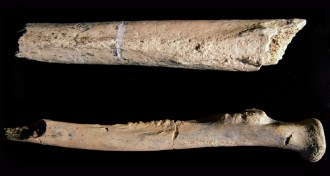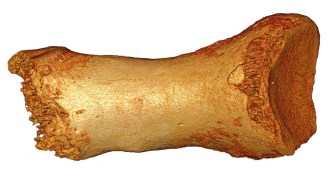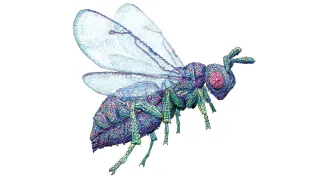Search Results for: Bears
Skip to resultsCan’t find what you’re looking for? Visit our FAQ page.
6,903 results for: Bears
-
 Life
LifeHow the snake got its fangs
A study of snake embryos suggests that fangs evolved once, then moved around in the head to give today’s snakes a variety of bites.
By Amy Maxmen -
 Plants
PlantsBittersweet fruits
A new study provides strong evidence that fruits harm predators with the same chemicals that, for example, give chili peppers their spice.
-
 Humans
HumansLittle big people
New fossil discoveries elevate ancient Pacific islanders, with disputed implications for controversial hobbit remains in Indonesia.
By Bruce Bower -
 Life
LifeFDA releases guidelines for genetically modified animals
Draft rules lay out policies for approving altered animals, including those used for food.
-
 Humans
HumansStone Age seafood fans
Excavations in two Gibraltar caves suggest that Neandertals, like modern humans, regularly visited the Mediterranean shore to complement a land-based diet with seafood
By Bruce Bower -

18918
Finally, scientists are exploring the nature of religious experiences. Scientists will soon discover that the final frontiers of science and the origin of religion are one and the same. In authentic Zen Buddhism, ultimate reality is that from which all things come and to which all things return. Astrophysicists are traveling in time to find […]
By Science News -

18928
I’ve often wondered about packing circles and have always assumed that it would get into messy numbers very quickly. Your article is a charming revelation. It says that if a, b, and c are integers, d will be one, too. I think this is true only if a, b, and c bear some relationship to […]
By Science News -
 Humans
HumansLetters from the December 17, 2005, issue of Science News
C plus Ewan Cameron, who in 1971 began to collaborate with Linus Pauling on vitamin C and cancer, typically initiated patients with 10 grams per day of vitamin C given intravenously for about 2 weeks, followed by an oral dosage continued indefinitely. The two Mayo Clinic trials referred to in “Vitamin C may treat cancer […]
By Science News -
 Humans
HumansFossils reveal a strong-armed, dead-end hominid
Olduvai Gorge finds suggest extinct hominid both walked and hung out in trees.
By Bruce Bower -
 Life
LifeNeandertal genes point to interbreeding, inbreeding
DNA from 50,000 years ago underscores modest levels of mating across hominid populations.
By Bruce Bower -
 Chemistry
ChemistrySalt spices up chemistry
Hot, compressed sodium chloride stretches the fundamental rules of matter.
By Beth Mole -
 Microbes
MicrobesMicroscopic menagerie
The microbes dwelling in and on multicellular organisms should be viewed as evolutionarily inseparable from their hosts, some biologists argue.
By Susan Milius